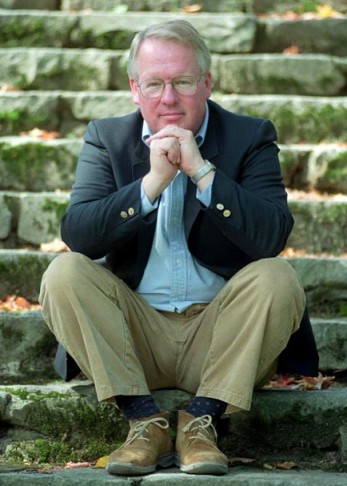I was saddened to learn of the passing of Rushworth Kidder, founder and president of The Institute for Global Ethics, whose stated mission is “To promote ethical behavior in individuals, and cultures of integrity in institutions and nations through research, public discourse, and practical action.”

I first became acquainted with Rush through his book, How Good People Make Tough Choices. “At a time when moral questions tend to be argued with more heat than light,” Kirkus Reviews wrote, “Kidder offers practical guidelines for a coherent and mindful approach to ethical dilemmas.” Not long after reading, I became a subscriber to his weekly Global Ethicsnewsletter and enjoyed reading his weekly commentaries.
“Prior to founding The Institute for Global Ethics,” the organizations memorial says, “Kidder served as a longtime journalist for The Christian Science Monitor, based in Boston, Massachusetts. He began his career at the newspaper in 1979 as London correspondent, eventually taking over weekly commentary duties on the Boston area as well as social trends and issues. Two of his essays appeared in the American Society of Newspaper Editors’ Best Newspaper Writing, 1983. As the Monitor’s feature editor from 1983 to 1985, he was part of a six-person team running the newspaper, ultimately serving as senior columnist until 1990. The New York Times described Kidder as one of the Monitor’s ‘most celebrated journalists.’ ”
“Widely praised as a provocative speaker and stimulating author, Kidder’s lifelong goal was to make ethics both practical and practiced, bridging the gap between moral philosophy and daily life. He spent much of his career calling for less polarization and greater cooperation — in politics, at school, within communities — by noting that many of life’s greatest challenges involve right-versus-right dilemmas between competing moral arguments.
“This philosophical framework served as the foundation for his nonprofit Institute for Global Ethics, which began as a second-story walk-up in the coastal Maine village of Camden. The Institute later opened offices in New York City and London, England, becoming a worldwide resource for practical ethics education and consultation. The Institute carries on Kidder’s work through regular seminars and workshops, a Center for Corporate Ethics in New York, and publication of Ethics Newsline®, an internet-based ethics digest for which he wrote a weekly column for more than 14 years.”
While ethics scandals continue to make the news, Rush Kidder and the Institute quietly worked instructing individuals and organizations on a better, more effective way to make decisions. In an increasingly fast-paced and competitive world, ethics and ethical decision-making is more critical than ever.
“We will not survive the morality of repetition,” Rush concludes in Good People,” The twenty-first century’s choices are simply too tough. Nor will we survive the morality of relativism: There is too much leverage these days behind even a single unpunished act of evil. We’ll survive by a morality of mindfulness. We’ll survive where reason moderates the clash of values and intuition schools our decision-making. There’s no better way for good people to make tough choices.”
The book’s dedication reads: “To my parents, Ruth and George Kidder, who taught us ethics by their example.”
During his lifetime, Rush became his own example to millions around the world.
It doesn’t get any better than that.
Comments










